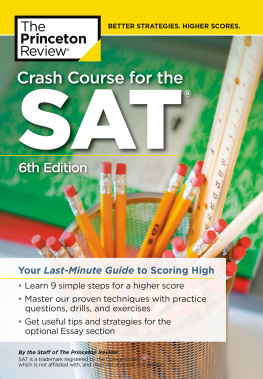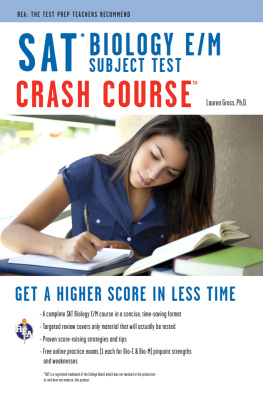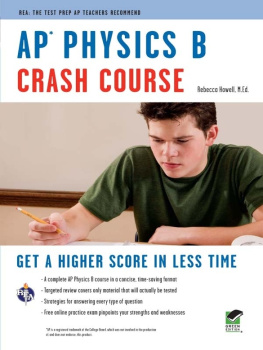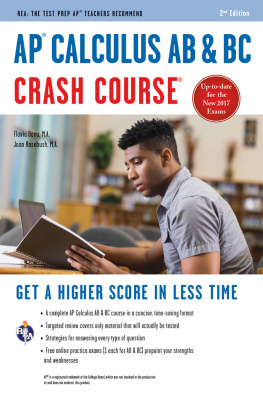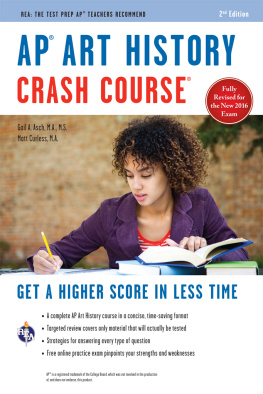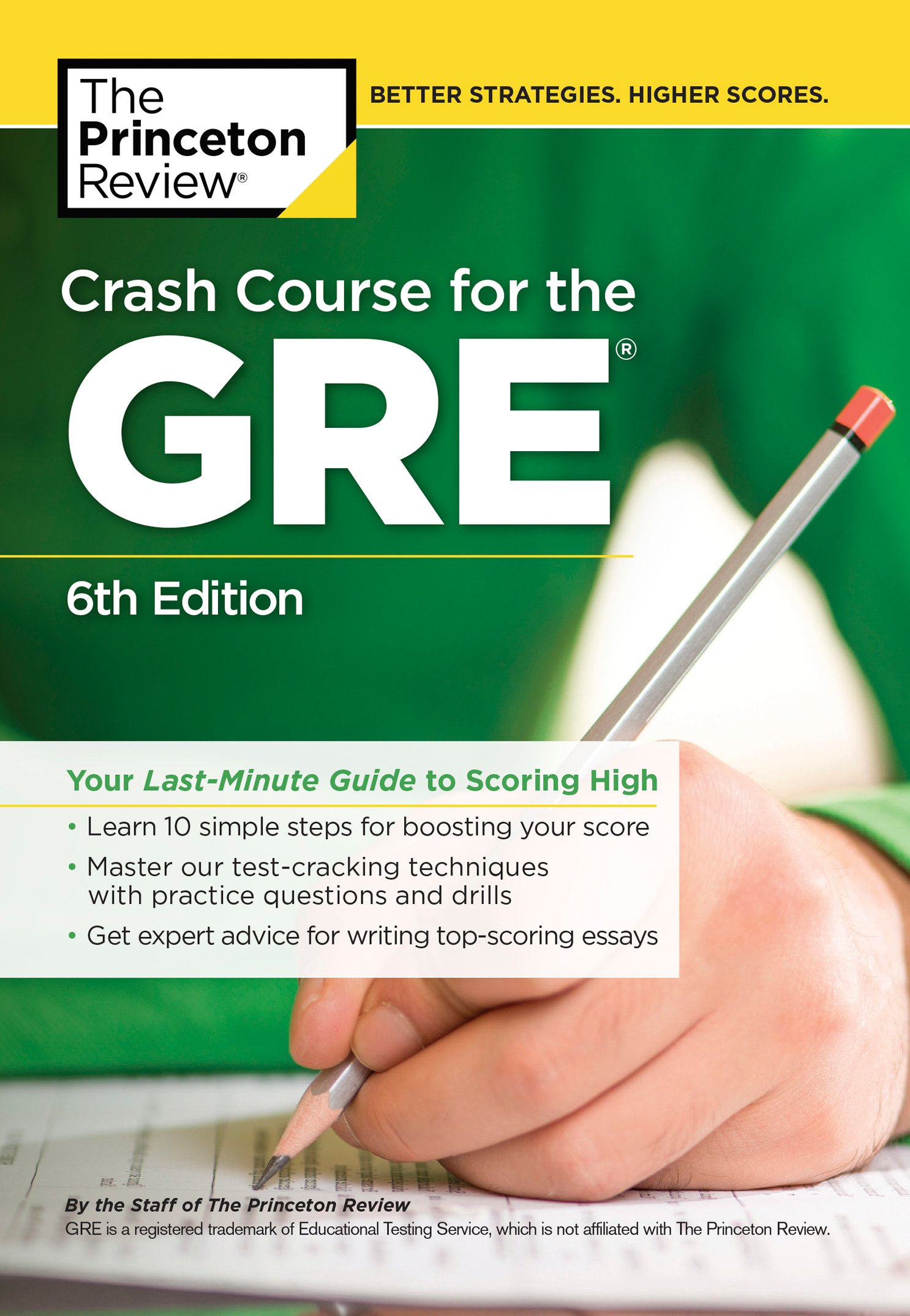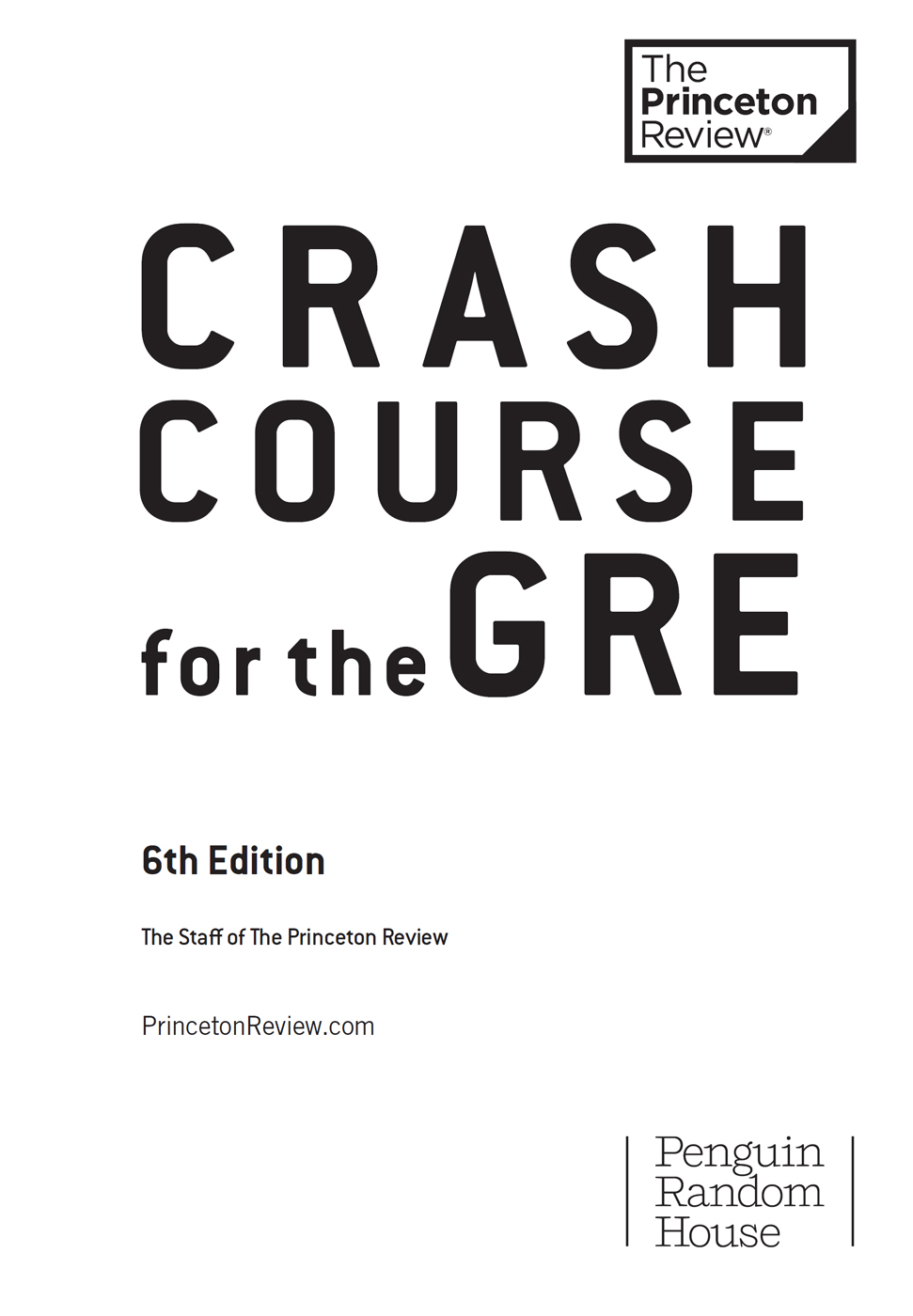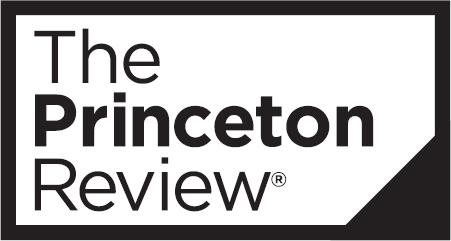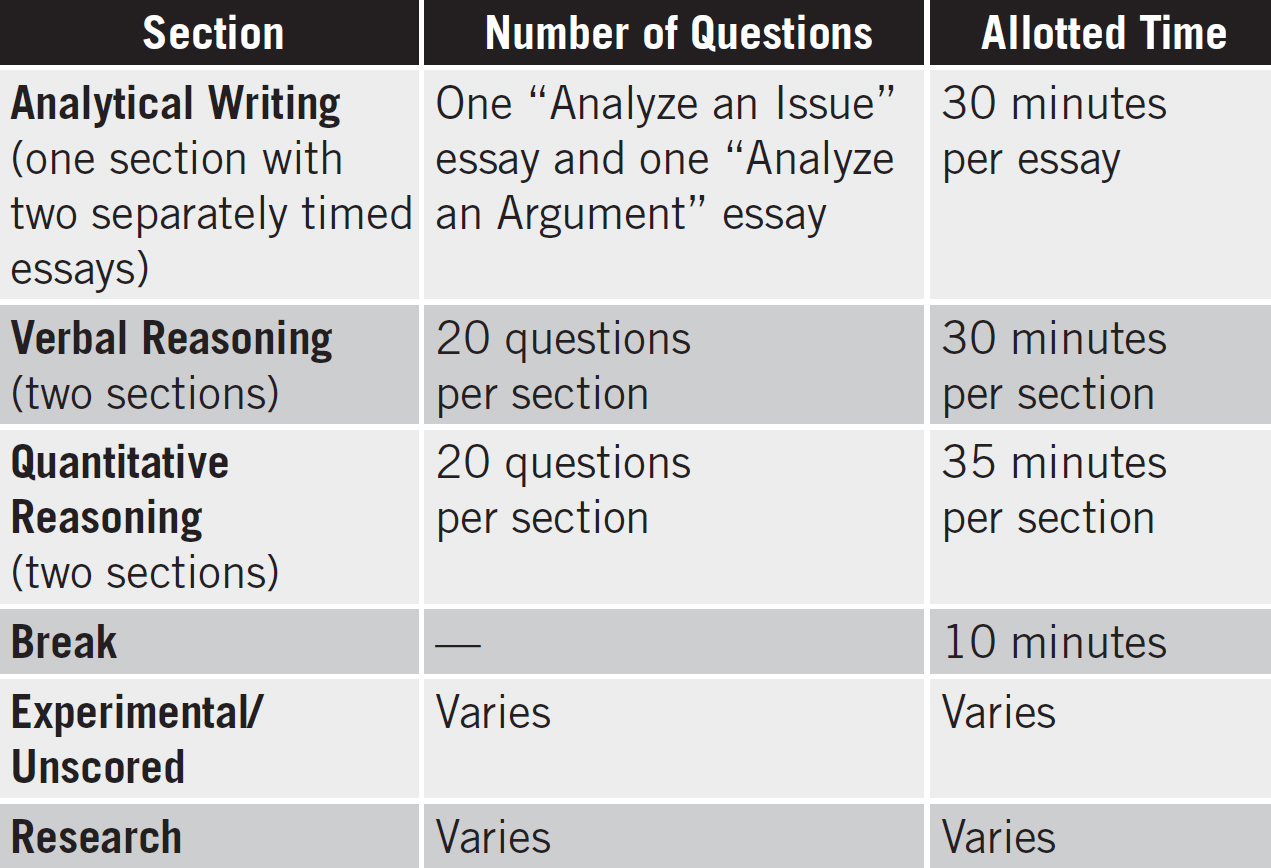555 W. 18th Street
Copyright 2017 by TPR Education IP Holdings, LLC. All rights reserved.
Published in the United States by Random House LLC, New York, and in Canada by Random House of Canada, a division of Penguin Random House Ltd., Toronto.
Terms of Service: The Princeton Review Online Companion Tools (Student Tools) for retail books are available for only the two most recent editions of that book. Student Tools may be activated only twice per eligible book purchased for two consecutive 12-month periods, for a total of 24 months of access. Activation of Student Tools more than twice per book is in direct violation of these Terms of Service and may result in discontinuation of access to Student Tools Services.
GRE is a registered trademark of Educational Testing Service, which is not affiliated with The Princeton Review.
The Princeton Review is not affiliated with Princeton University.
Production Artist: Deborah A. Silvestrini
Acknowledgments
The Princeton Review would like to thank Kyle Fox, Rachel Suvorov, Beth Hollingsworth, and Kevin Kelly for their dedication, hard work, and expertise with revising the 6th Edition.
Special thanks to Adam Robinson, who conceived of and perfected the Joe Bloggs approach to standardized tests, and many of the other successful techniques used by The Princeton Review.
Lastly, the editor of this book would like to thank Deborah A. Silvestrini, Liz Rutzel and Sara Kuperstein for their work on this edition.
Contents
Register Your Book Online!
Go to PrincetonReview.com/cracking
Youll see a welcome page where you can register your book using the following ISBN: 9781524710316
After placing this free order, youll either be asked to log in or to answer a few simple questions in order to set up a new Princeton Review account.
Finally, click on the Student Tools tab located at the top of the screen. It may take an hour or two for your registration to go through, but after that, youre good to go.
If you have noticed potential content errors, please contact EditorialSupport@review.com with the full title of the book, its ISBN number (located above), and the page number of the error.
Experiencing technical issues? Please e-mail TPRStudentTech@review.com with the following information:
your full name
e-mail address used to register the book
full book title and ISBN
your computer OS (Mac or PC) and Internet browser (Firefox, Safari, Chrome, etc.)
description of technical issue
Once youve registered, you can
Plan your review sessions with study plans based on your schedule1 week, 2 weeks, or 4 weeks
Print and memorize GRE key terms and work through vocabulary matching exercises
Read important advice about the GRE and graduate school
Access crucial information about the graduate school application process, including a timeline and checklist
Check to see if there have been any corrections or updates to this edition
Offline Resources
Verbal Workout for the GRE, 6th Edition
Math Workout for the GRE, 4th Edition
1,007 GRE Practice Questions, 4th Edition
What Is Crash Course for the GRE?
Crash Course for the GRE is a quick but thorough guide to the fundamentals of the GRE. It includes helpful techniques for nailing as many questions as possible, even if you dont have a lot of time to prepare. Crash Course for the GRE will give you an overview of the test, exposure to all question types, and loads of helpful advice, including 10 specific tips on how to improve your score. But remember that this book is not intended to be a comprehensive study guide for the GRE. If you need significant score improvements or a more intensive review of any of the subject matter you encounter, try our other helpful GRE books, Cracking the GRE,1,007 GRE Practice Questions, Math Workout for the GRE, or Verbal Workout for the GRE. You can also register to take a free full-length GRE practice test online at PrincetonReview.com/grad/gre-practice-test.
What Is the GRE?
The Graduate Record Exam (GRE) is a 3-hour and 45-minute exam intended to rank applicants for graduate schools. It does not measure your intelligence, nor is it a realistic measure of how well youll do in graduate school. It is safe to say the GRE provides a valid assessment of only one thing: how well you take the GRE. Luckily, this is a skill you can improve with practice.
After you take the GRE, you will receive a Analytical Writing score, a Verbal Reasoning score, and a Quantitative Reasoning score. These correspond to the three types of sections you will see on the test.
Section by section, heres how the test breaks down:
The Analytical Writing, or essay section, always comes first. It consists of two back-to-back essays, with 30 minutes each to write. After the essays, you will have two of your five multiple-choice sections, and then you will get your one and only proper break after the third section. Most students see five multi-question sections, either two Verbal and three Quantitative (Math), or three Verbal and two Math. Two Verbal sections and two Math sections always count. The extra section is an experimental one. It may be Math or Verbal. It will look just like the other sections, but it will not count. These five sections, including the experimental, could occur in any order. There is no way to know which section is experimental. You will have a one-minute break between each of these sections.
You might also get a research section in place of the experimental section. If so, the research section will come last, and it will be identified as a research section. The test will specifically say that the section does not count toward your score. If you see one of these, your test is over, and your first four multi-question sections counted.








